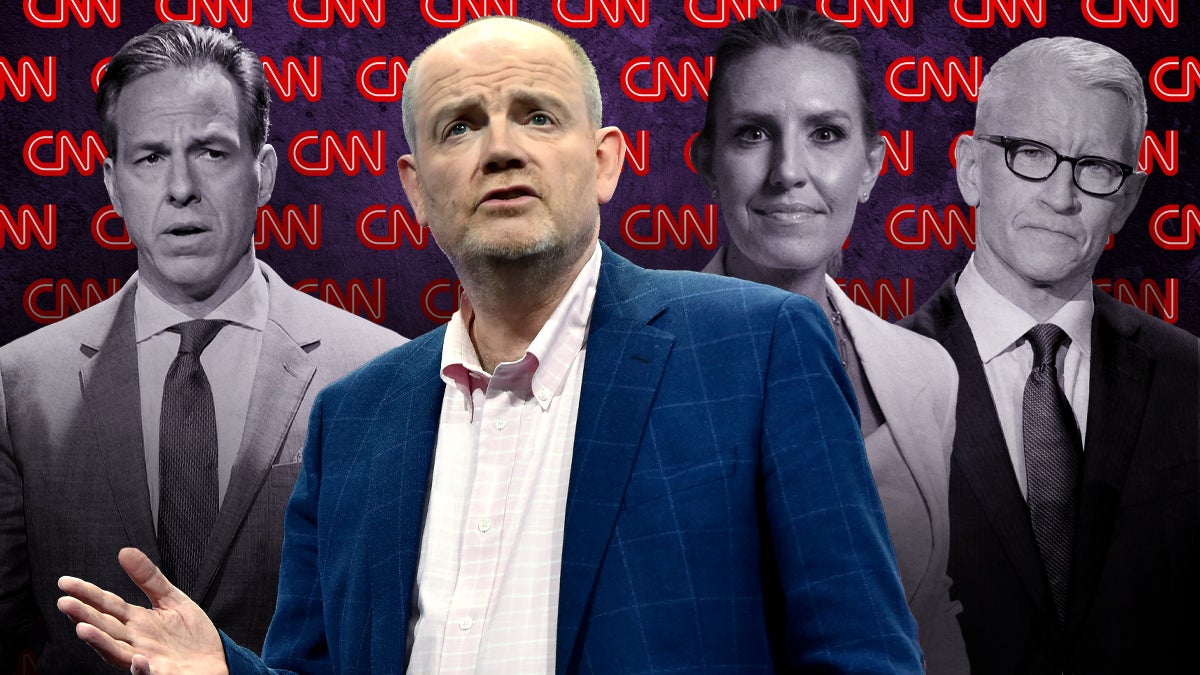- Digital Media Products, Strategy and Innovation by Kevin Anderson
- Posts
- Journalism needs to open up new career paths as it faces a talent crisis
Journalism needs to open up new career paths as it faces a talent crisis
Google launches Offerwall, a new monetisation tool

Burnout, frustration at the lack of opportunities for advancement or growth, and the hollowing out of the industry: Journalism is facing a talent crisis. While some of the crisis is driven by the collapse of the business at multiple levels, some of it is self-inflicted. Yes, journalism is shedding staff at a furious pace, but it is also is driving people filled with passion for the mission and the work away by having rigid, outdated career paths. And it’s failing to take care of leaders exposed to incredible levels of stress as they must make painful decisions during what feels like endless rounds of cuts.
The loss of reporters
I don’t want to gloss over the loss of reporting talent as well. More than 8000 jobs in journalism disappeared last year across the US, UK and Canada, according to the Press Gazette. Not all of these positions were reporters, but the cuts were still deep and broad. More than 500 journalists were laid off in the US in January alone, according to Politico.
It’s grim, and this crisis has hit so many people. And I know how challenging it is to remain resilient in the face of this. I took a buyout from the Guardian in 2010 and joined my wife in her media consultancy. I had a fascinating role with the Media Development Investment Fund that only lasted a year in 2012. I joined Gannett as a regional executive editor in 2014. I survived the first six rounds of cuts large and small but not the seventh, and the position was eliminated in 2015. I went back to consulting and training before returning to full-time employment in 2018. I have been grateful for more stability since then. And now I work as the consulting director for Pugpig, a company that builds apps, websites and digital archives for publishers. I love helping publishers succeed, but I am wary about doing it inside the burning building.
An exodus of product talent
“Cats need to be herded. Cats don’t like being herded. How does that make the cat herder feel?” That is my tongue-in-cheek summary of my master’s dissertation. Kidding aside, the research looked at how the cross-functional coordination work - known formally as boundary-spanning - affected the professional well-being of product managers at news organisations. Were they thriving, surviving or burning out? Of the 17 product managers I interviewed for my research, five had left a role or the industry entirely not long before the research. Another data point to consider: Although the sample was evenly split between men and women, of the five who left the industry, four were women. That is a topic unto itself, which I’ll touch on in another newsletter.
I was reminded of the conversations I had with these amazing product managers this week when a community I’m part of was expressing frustration about the lack of advancement opportunities for product-minded people in the journalism industry. They told stories of being passed over for senior leadership positions in journalism groups because they hadn’t come up through the editorial side of the business. They believed that their cross-functional skills, particularly business skills, made them uniquely suited to meet the challenges facing news organisations. Like the subjects of my research, some were so frustrated that they were considering leaving the industry.
I won’t say more in detail about the conversations in that community, but I can add some of the findings from my research. One product manager had grown frustrated by what she referred to as HiPPO decision-making - strategies decided and driven not based on data and research but rather based on the highest-paid person’s opinion. It was just one example of a lack of alignment at levels of management above the product manager. Without that agreement on high-level goals, stresses built up on the product managers and they burnt out.
Market leaders like the New York Times have invested heavily in product talent, In other news organisations, managers need to understand that product managers who started as journalists still have aspirations to manage and have influence over wider parts of the business. There need to be clearer paths of progression for these valuable employees. Many of these product leaders have developed expertise across the business, and that would be valued and rewarded in other businesses. In my research, product managers naturally developed cross-functional relationships, many even before taking on formal product roles. Cross-skilling across editorial, commercial and technical roles should be formalised and used to train product managers and product-minded editors to become future leaders.
And now onto the media news for the week. AI is the topic of the year, and in this article, Ross Sleight, chief strategy officer at digital transformation specialists CI&T, talks about the changes that are coming in the industry. Google’s Gemini will change the search experience, and that is just one change coming in terms of interfaces. Changes in technology and the business will continue. New organisations need to do what so many are doing right now, experimenting with proofs of concept, working for internal alignment and adoption and scaling what works.
“Generative AI is an epochal development—less like social media and more like the advent of the internet itself. Much like that moment, this technology is transformative because it empowers people in how they create and find information.” This piece raises questions about how IP should be licenced and how business models will evolve. And it will allow for the rapid development of new products. This is a good piece that covers the complexities of the changes AI will bring.
WAN-IFRA, which I have had a long-standing relationship with, has just launched an AI programme for the year, and they highlighted how major media companies in Europe and Asia are using AI in their newsrooms. I like how Wang Yin of Mediacorp put it in saying that the Singaporean broadcaster was “making (AI) an assistant and not a replacement”. They are looking to use AI to make workflows more efficient. Smart.
The latest Reuters Digital News Report “suggests that knowing your audience is key and media publishers should target readers who are already considering paying for news”. If there is a theme to this newsletter, it is the call to focus on your audience and get close to them. Inside Story in Greece has 4000 paying members, and they connected with many of them through in-person workshops. Ah, the value of relationships.
Google has launched a new tool called Offerwall that allows a new “range of options such as purchasing a subscription, viewing a video ad, sharing data, or making a micropayment for short-term access”.
With Press Forward starting to name partner communities and states, Dan Kennedy says that there must be other models that reach smaller communities and smaller news start-ups.
My friend Adam Tinworth takes a look at the end of the era of platform dependency. “All this talk of “gatekeepers” and “platforms” disguises the brutal truth: we let other companies come between us and our audience.” Amen. During the platform era, we got focused on the needs of platforms rather than the needs of our audiences.
More media business turmoil: Buzzfeed to sell acquisitions and CNN stars face pay cuts
Anderson Cooper makes $20m a year, and Wolf Blitzer makes $15m a year. This level of salaries are unlikely to remain so high as CNN struggles and new CEO Mark Thompson reviews budgets. As The Wrap points out, Thompson is not accustomed to seven-figure on-air talent salaries, and the market simply won’t support these excessive salaries in the future.
Media has always been a star system, and TV is much more so. The median TV producer salary is $53,000, but small station salaries can be a lot less. Wolf Blitzer’s makes 283 times more than the average TV producer in the US. The cable TV news market won’t justify that premium going forward.
Two years after Buzzfeed went public to raise capital to go on an acquisition spree, it is now having to sell some of those acquisitions as it struggles to hold on, Sarah Fischer of Axios says.







